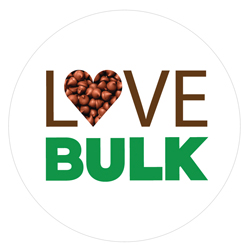
One of the biggest environmental problems we face is packaging waste. For most of the public every shopping trip they take results in lots and lots of packaging…cereal boxes, cans or bags of nuts, bags of rice and beans, plastic milk jugs, etc. There are quite a few steps we can take to reduce our contribution to the packaging waste stream and one huge one is to simply eat real, local foods and not the processed foods that are more typically found in boxes and plastic bags. Yet there are always going to be exceptions. These might include your favorite cheese that comes wrapped in a thin layer of plastic or the almonds you buy from your local grocer that come in a plastic bag. Eating real foods as opposed to processed is a big step in the right direction but it might not help you eliminate as much packaging as you’d like to.
Think about all the resources (energy, water, money) used to make the packaging that ends up going straight to a landfill where it may or may not biodegrade (mostly not, if it’s plastic). What can we do besides eliminate all our food favorites that come in a package? Well, buying in bulk enables us to keep buying the products we love while simultaneously reducing the amount of packaging. You buy less often but in more quantity. This enables you to save money typically but also reduce the packaging by shocking amounts. For some data on just how much can be saved check out the Bulk is Green Council (BIG), a non-profit organization dedicated to promoting the environmental and economical benefits of natural and organic bulk foods. They have a report on their site with some figures that show just how big of an impact you can make if you buy all the coffee you need for a year or all the peanut butter you need, in one purchase. Here is an infographic with some of the stats:

Tips for Buying in Bulk
- Shop the bulk bins at your local grocer as much as possible
- Fill muslin or cotton produce bags with loose rice, beans, cereal, flour, grains, seeds, nuts, etc.
- Purchase foods from co-ops in large amounts (10-25 gallons or more)
- Use a freezer & dehyrator to preserve foods so that you can buy in more quantity
- Bring your own buckets, jars, bags, etc to your local farmers and farmer’s markets and stock up
- Use large mason jars for storage
- Use small stainless tins for loose spices and herbs
- Shop your own pantry and use up what you have before buying new
- Budget for large quarterly “bulk” grocery bills as opposed to weekly/monthly bills
- Buy up-wrapped “wheels” of cheese instead of cut sections wrapped in plastic
If you are ready to make the commitment to do better about buying in bulk then you may want to sign the Love Bulk Foods pledge. They will be awarding bulk good gift baskets throughout the month of April to random people who have taken the pledge.



